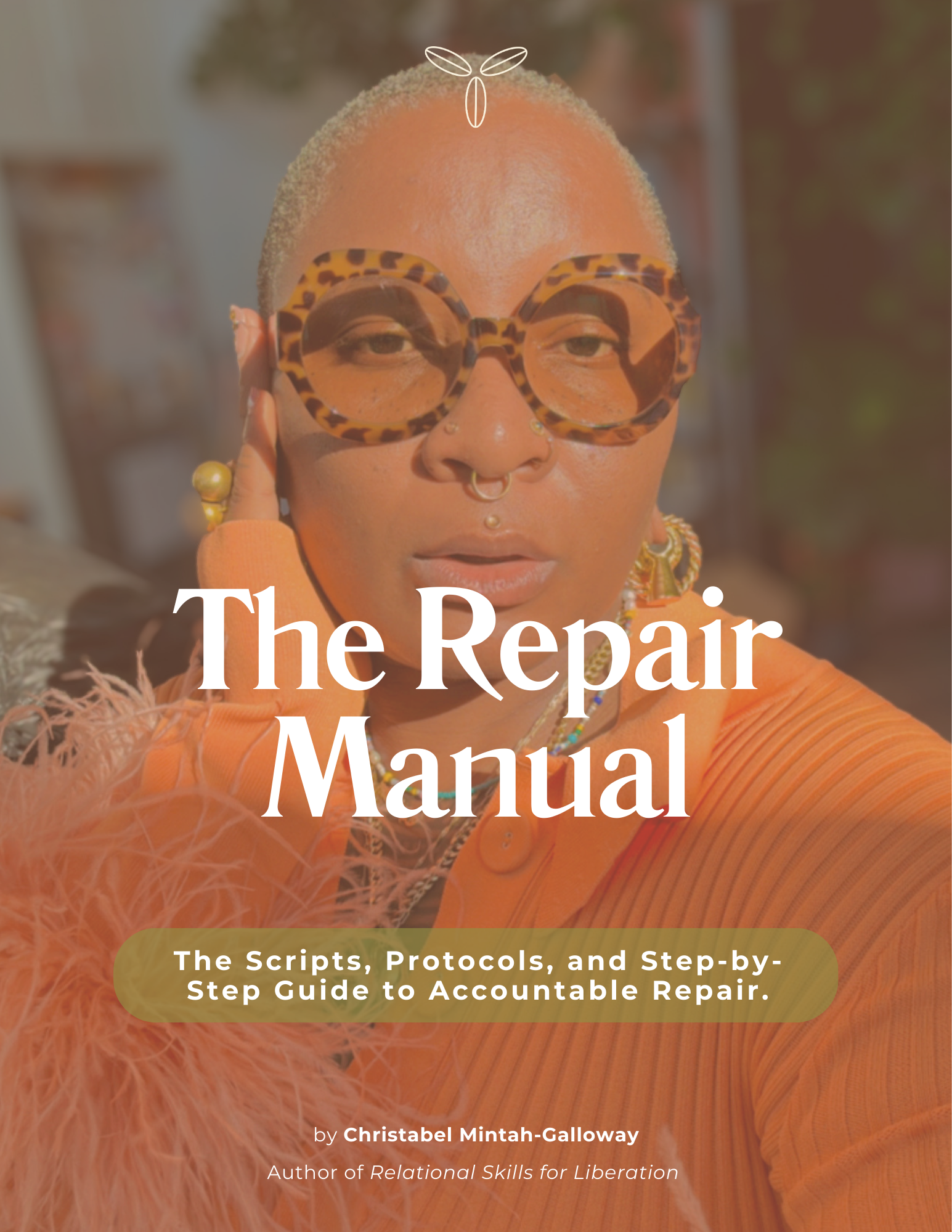We were never taught how to hold each other.
Most of us are trying to build adult intimacy using survival tools from childhood. It’s time to trade the "silent treatment" and "cutting people off" for skills that actually build connection.
You are "doing the work," but you still feel alone.
You go to therapy, you’re read the books, and definitely know your attachment style.
But when conflict happens, you still freeze. You still over-explain. You still feel like you have to choose between abandoning yourself to keep the peace, or abandoning the relationship to stay safe.
It’s not you. It’s your blueprint. You cannot build a community of care if your only tools are isolation and defense.
Unlearn Isolation. Practice Repair.
The Relational Skills Toolkit is the complete ecosystem for rewriting your patterns. It combines the deep internal excavation of the Workbook with the concrete, word-for-word scripts of the Repair Manual.
I’m Christabel Mintah-Galloway. As a queer African immigrant leaving a high-control religious environment, I lost my entire community in one fell swoop. I had to learn how to build relationships from scratch, without the safety net of the "rules" I grew up with.
I created these tools because I needed them. I needed a map that didn't just tell me to "set boundaries," but showed me how to do it without losing the people I loved.
Relational skills cannot be learned in isolation.
The Workbook gives you the map. The Workshop gives you the practice ground.
A few times a year, I open a live, interactive container for folks who want to move from "intellectualizing" their patterns to embodying new ones in real-time.
These cohorts sell out quickly. Join the waitlist to get 24-hour early access to registration and a subscriber-only discount.





